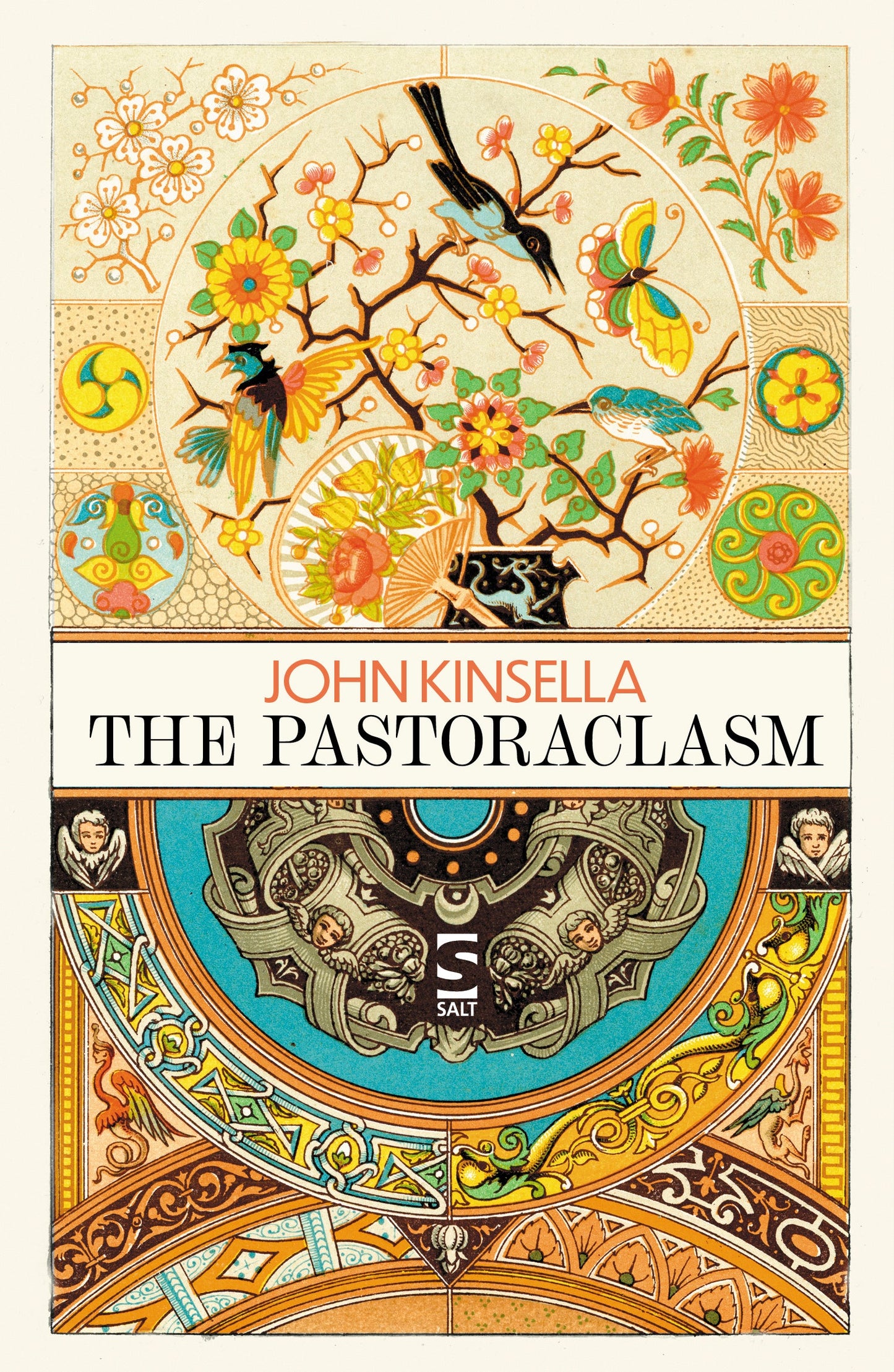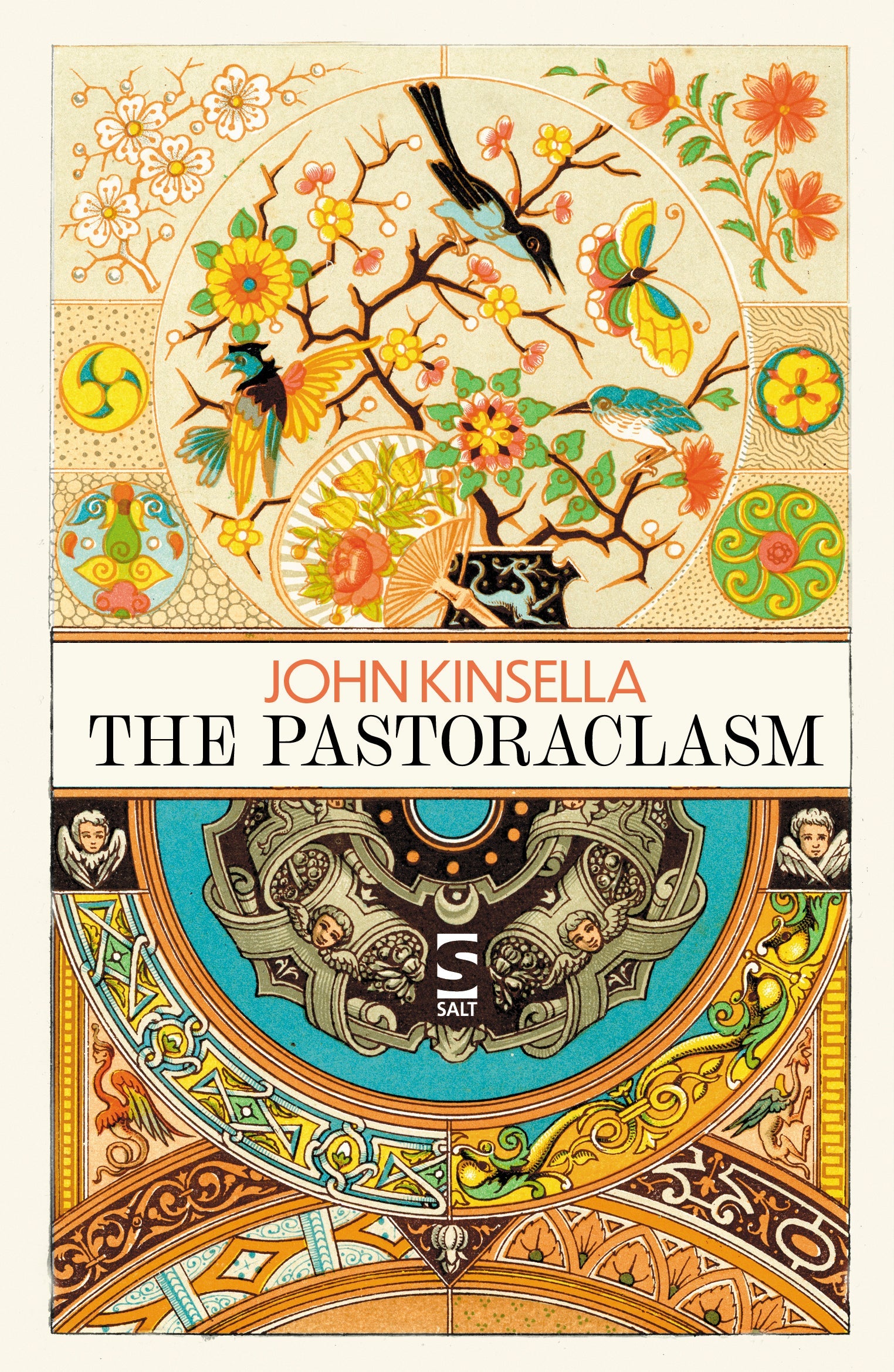John Kinsella
The Pastoraclasm
The Pastoraclasm
ISBN:9781784632847
Couldn't load pickup availability
Synopsis
Departing from Virgil’s Eclogues, The Pastoraclasm is an urgent environmental address to humans, nature and vegetable gardens. During pandemic lockdowns, poet John Kinsella realised that he would have to garden not because he enjoys it but because his family, who live ‘in the bush, would need whatever he could grow. Fierce summers, fire danger, and only having access to rainwater tank water — refusing to drain the aquifer further by using one of the two bores at ‘Jam Tree Gully’, reinforced the realisation that gardening needs to be a careful negotiation with the limitations of time, place and conditions of presence.
What developed was a set of dialogues with the garden, and with the endemic plants and animals that surrounded it. Searching for a decolonising antipastoral ‘eclogue’, the poet continues his decades-long practice of investigating the nature of ‘pastoral’ and its failure to translate into the Australian environment/s.
Writing to a poet in Wales, Kinsella said: ‘We’re in regional lockdown here, and trying to grow veggies in drought conditions. Lot of silvereyes, thornbills and gerygones out there today – overcast, which is unusual at the moment (still very hot), and that has them vigorous with hope, I guess... but no rain predicted. On emergency water supplies now.’
In this cycle of eco-eclogues, a counter-pastoral of responsibility emerges – one that acknowledges the toxic impact of colonialism, and which seeks to address human rapacity through challenging consumerism and industrialism and offering an ‘alternative’ way of living. As garden and gardener, soul and self, all speak with each other, they are conscious of how close fire and other catastrophes are, and together they try to evoke a healing and a path through to justice for the biosphere. Known for his wide variety of poetic approaches and techniques, this collection is very much about utterance, place and a belief that there are no easy garden metaphors, that garden’s are also spaces of responsibility.
Reviews of this Book
‘John Kinsella’s work has always engaged explicitly with environmental issues and The Pastoraclasm recounts lockdown gardening through the prism of the Eclogue. The poet’s drought-challenged garden provides the setting for a series of meditations on the biosphere and the pastoral genre. When seeds sold out during lockdown panic, the poet seeks out old packets of ‘organic heirloom seeds, and these I sow’. So, too, he sows the eclogue and works with what emerges. Kinsella has always been alert to the moral trail left by literary forms and, of course, he interrogates the pastoral eclogue to see if it’s an adequate vessel to describe contemporary environmental catastrophe.’ —Gwyneth Lewis, PN Review
‘Kinsella’s body of work now spans more than thirty collections. The first two substantial volumes of his trilogy of collected poems, The Ascension of Sheep and Harsh Hakea, bring together pieces published in pamphlets and major volumes, journals and out-of-print editions. His work is often described as political: he has used his poems to speak out against nuclear technology, capitalist greed, colonialism, cruelty to animals and the death penalty. He has written eloquently about land rights, chronicled the rough work of sheep farming, sketched Grantchester Meadows in verse and taken aim at Cambridge’s animal-testing labs and pesticide-laden crops. He has published triolets, sestinas and verse dramas, experimental shape-poems and landscape poems featuring “big oil”. His idylls involve chemical pesticides; his eclogues feature maggoty sheep.
The Pastoraclasm is the next stage in Kinsella’s project to modernize pastoral poetry. Here he styles himself alternately as a “gardener” and a “pastoral elegist”. In ecologues, poetic dialogues, psalmodic couplets, a roundel and free verse, he tends his fragile garden. He acknowledges the difficulty and strangeness of trying to ensure that his seedlings survive the drought “as climate shifts and breaks down”. He acknowledges that this landscape fringed by volcanoes is “a land of conflagration”, and with fiery air comes a reminder that international travel fuelled the pandemic.
’ —Yvonne Reddick, TLS
Praise for Previous Work
‘A striking feature of Kinsella’s highly-political poetry [is that] while it is concerned with what Kavanagh termed the “local row”. . . it also takes a globalised view...so that the poems’ perspective never rests either on the particular or the abstract, but shifts constantly between the two.’ —Caitríona O’Reilly, The Irish Times
‘Insomnia, John Kinsella’s latest collection in what has been, over 30 years, a remarkable writing career, is a work of eco-activism. The Bulldozer Poem, its opening rallying cry, was written in response to the attempt to run a road through wetlands in Perth, Western Australia, and has been recited in the path of bulldozers. But is it a flimsy hope to think of poetry as a force in an ecological battle? What gives this important book its edge is that Kinsella worries at – and about – the relationship between art and an endangered world’ —Kate Kellaway, Observer
‘In his latest collection [Armour], acclaimed WA poet John Kinsella sings neither of the hackneyed melancholy of the bush nor, as he writes in the poem Habitat, “false elegies turned on a lathe”. But there is something both melancholy and elegiac about Armour; it's as though each poem is one of those mannequins trapped in "glass-fronted rooms" (The Vitiation of Presence) or an emanation of the megamouth shark “'rescued' from death in shallows to depthless formalin" (Megamouth Shark). Here are encounters with native flora and fauna and other loved ones, the rural and the urban, the past and the present, the living and the dead, rendered in a music that is as complex and ambivalent as it is accessible and disturbing.’ —William Yeoman, The West Australian
Product Details
Extent: 128pp
Format: Paperback
Publication Date: 15-Mar-23
Publication Status: Active
Series: Salt Modern Poets
Subject: Poetry
Trim Size: 198 x 129mm


